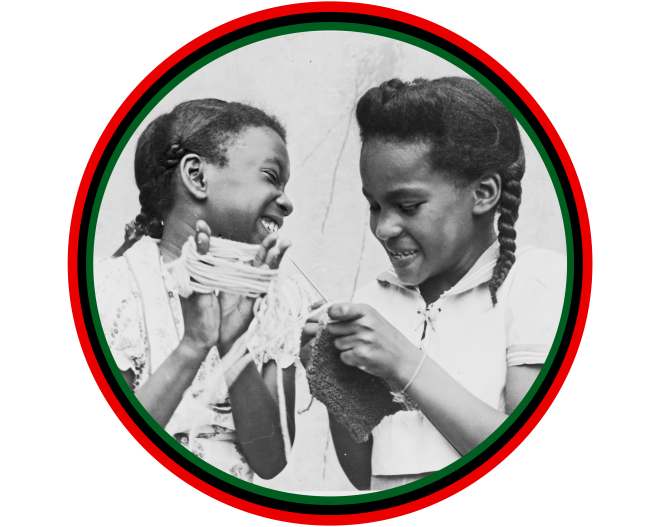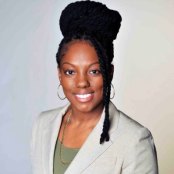 Janaé E. Bonsu
Janaé E. Bonsu
Janaé E. Bonsu is a black queer feminist activist, organizer and Ph.D. student of social work at the University of Illinois Chicago. She currently serves as the National Public Policy Chair of Black Youth Project 100 (BYP100), an activist member-led organization of black eighteen to thirty-five year olds dedicated to creating justice and freedom for all black and oppressed people. Janaé has played key roles in BYP100’s anti-criminalization and police accountability campaigns and co-authored the organization’s public policy agendas – the Agenda to Keep Us Safe and the Agenda to Build Black Futures. She is also a member of the Movement for Black Lives (M4BL) Policy Table, which produced the Vision for Black Lives: Policy Demands for Black Power, Freedom & Justice. Her written work has been featured in Dissent Magazine, Ebony.com, The Root, The Hill, Truthout, People’s World, and peer reviewed journals. Janaé is dedicated to building a world free of punitive state systems through transformative justice.
Emily Bridger
Emily Bridger is currently in the final stages of completing her Ph.D. in History at the University of Exeter, having previously completed her Masters degree in African Studies at the University of Oxford. Her Ph.D. research explores the involvement of black female children and youth in South Africa’s anti-apartheid struggle from 1984 to 1994, and is the first historical study of political black girlhood in the country. This research is based largely on oral history interviews with former male and female anti-apartheid activists. Emily’s previous research on Winnie Mandela has been published with Gender & History, and her work on children and the British Anti-Apartheid Movement with the Journal of World History. Her next research project will be a wider study of black girlhood in urban South Africa from 1960 to 1994, and will explore how African girlhood was constructed and contested by the state, educationalists, welfare organizations, parents, and boyfriends, and how girls themselves assumed and rejected various expectations of female behavior.
 Ruth Nicole Brown
Ruth Nicole Brown
Ruth Nicole Brown is an associate professor in Gender and Women’s Studies and Education Policy, Organization and Leadership at the University of Illinois at Urbana-Champaign. Her research documents, analyzes, and interrogates black girls’ lived experience and explores the gender and racialized power dynamics of collectivity, particularly as it relates to black girlhood. Through research and creative projects, she is interested in the ways black girls make use of abstract concepts like freedom, justice, and power. She is the visionary of Saving Our Lives, Hear Our Truths (SOLHOT), a practice based, publicly engaged, collectively organized space for black girls to envision black girlhood anew. Brown’s first book, Black Girlhood Celebration: Toward A Hip Hop Feminist Pedagogy (Peter Lang Press, 2009) counters the invisibility of black girls and the marginalization of black girlhood in academic literature by providing a new way to theorize black girlhood through praxis. Her second book, Hear Our Truths: The Creative Potential of Black Girlhood (Illinois Press, 2013), provides an ethnographic account of the creative processes black girls rely on to make intelligible the ways power, creativity, spirituality, memory, and performativity structure meanings of belonging. This book builds on the work of black feminists and feminists of color to break intriguing new ground in black feminist thought and methodology. Currently, she is working on a multi-media project, Black Girl Genius about the importance of independent and everyday black girls’ cultural and artistic expressions.
Photo by Kru
 Kelly Duke Bryant
Kelly Duke Bryant
Kelly Duke Bryant is an associate professor at Rowan University in Glassboro, New Jersey, where she teaches African history; she earned her Ph.D. in history at Johns Hopkins University in 2009. Most of her published work has explored the history of education in colonial Senegal. Her first book, Education as Politics: Colonial Schooling and Political Debate in Senegal, 1850s-1914, was published in 2015 by the University of Wisconsin Press. Her research articles have appeared in the Journal of African History, the International Journal of African Historical Studies, French Colonial History, and elsewhere. She has contributed chapters to several edited collections, including one entitled Children on the Move in Africa: Past and Present Experiences of Migration (James Currey, 2016). She has also delivered numerous conference papers and public talks. While she continues to write about colonial education, she has also begun to work on a new research project that examines the history of labor migration and other travel between French West Africa and Western Europe at the turn of the twentieth century.
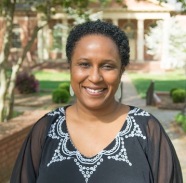 Nicole Burrowes
Nicole Burrowes
Nicole Burrowes is a postdoctoral fellow in the History Department at Brown University in the fields of Caribbean and Latin American history and African Diaspora Studies. Her research and teaching interests include social movements, intersectionality, transnationalism, and the politics of solidarity. Her book manuscript, “Seeds of Solidarity: African-Indian Relations and the 1935 Labor Rebellions in British Guiana,” examines a series of strikes that African and Indian youth, women and men led on sugar estates, in the context of the rebellions that shook the Caribbean in the 1930s. Her work challenges the widely-held assumption that racial conflict in Guyana is inevitable. She also examines the very different diasporic projects of African and Indian communities during this period. Beyond academia, Nicole draws on an extensive experience in community organizing and documentary film.
Tara Bynum
Tara Bynum, Ph.D. is a NEH long-term fellow at the American Antiquarian Society and a Visiting Assistant Professor at College of Charleston in the departments of English and African American Studies. Her book project, Reading Pleasures, examines how early African-American writers and authors document what it means to feel good; the project is currently under review as part of the New Black Studies series, University of Illinois Press. She received her Ph.D. in English from Johns Hopkins University.
 Katharine Capshaw
Katharine Capshaw
Katharine Capshaw is Professor of English and Africana Studies at the University of Connecticut where she teaches children’s literature and African American literature. She is the author of Civil Rights Childhood: Picturing Liberation in African American Photobooks (Minnesota 2014) and Children’s Literature of the Harlem Renaissance (Indiana 2004); both monographs won the annual Children’s Literature Association award for Best Scholarly Book, among other prizes. Capshaw has published more than two-dozen articles on gender and race in children’s literature and culture in a variety of academic journals, including African American Review, MELUS, and Children’s Literature. Capshaw is the former editor of the Children’s Literature Association Quarterly and has guest-edited several journal issues and forums. She has served on the Board of the Children’s Literature Association and on the MLA Division on Children’s Literature. She is active in the International Research Society for Children’s Literature and has delivered master classes and tutorials in the UK, France, and China. At UConn, Capshaw recently co-founded the Multicultural Children’s and Young Adult Literature Research Center and founded and directs the Minor in Diversity Studies in American Culture.
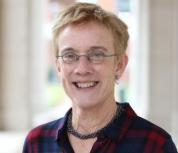 Anne M. Coughlin
Anne M. Coughlin
Anne M. Coughlin is the Lewis F. Powell, Jr., Professor of Law at the University of Virginia. She taught at Vanderbilt Law School from 1991-95, and she joined the University of Virginia faculty in 1996 after visiting during the 1995-96 academic year. Her primary research and teaching interests are in the areas of criminal law, criminal procedure, feminist jurisprudence and law and humanities. She is co-author of a casebook on criminal law, and she has written a number of articles exploring the intersections among criminal law, criminal procedure and feminist theory, as well as essays concerning the connections between law and literature. In 1999, Coughlin received an All-University Teaching Award, one of the University’s highest honors for excellence in teaching, research and service. She is co-chair of the National Association of Women Lawyers Supreme Court Evaluation Committee and of its Amicus Committee. Coughlin received her J.D. from New York University School of Law. At NYU Law School, Coughlin won numerous awards, and she served as managing editor for the New York University Law Review. After graduation, she clerked for Judge Jon O. Newman of the U.S. Court of Appeals for the Second Circuit, and for U.S. Supreme Court Justice Lewis F. Powell Jr.
Corrie Decker
Corrie Decker is an associate professor of history at the University of California, Davis. Her book, Mobilizing Zanzibari Women: The Struggle for Respectability and Self-Reliance in Colonial East Africa (Palgrave Macmillan, 2014), investigates Muslim girls’ education and women’s professionalization in twentieth-century Zanzibar. Her work also appears in Past & Present, the Journal of Women’s History, the International Journal of African Historical Studies, and Africa Today, as well as in edited volumes. She is co-authoring a book on the history of development in Africa with Elisabeth McMahon, now under contract with Cambridge University Press. Decker’s current research investigates the role of ethnography in debates about childhood sexuality in colonial East Africa.
 Bev Ditsie
Bev Ditsie
Bev Ditsie is an artist, an activist, a television writer/director best known for her human rights advocacy and human rights documentaries. Having started acting at the age of ten , and having been a prominent queer rights activist since the age of seventeen, Ditsie understands the medium of television and its impact on society and has, for the last twenty years as a freelance director and independent filmmaker, sought to produce content that is both educational and affirming for her fellow black South Africans and the world. Ditsie was born in Orlando West, Soweto, South Africa in 1971. She was a founding member of the first multi-racial LGBTI organization in South Africa, GLOW, in 1989. In a major visibility campaign, she became the first black lesbian to come out publicly in the media, challenging discrimination against queer people. She has written, directed, and consulted in over twenty documentaries, screened nationally and internationally. Her first documentary film, Simon and I (2001), won a number of Audience Awards, including the 2004 Oxfam/Vues d’Afrique best documentary, Montreal Canada.
Sonya Donaldson
Sonya Donaldson is an assistant professor of World Literature in the English Department at New Jersey City University. She received her Ph.D. from the University of Virginia, where she focused on Afro-German autobiographical narratives. Her book manuscript: Irreconcilable Differences?: Memory, History, and the Echoes of Diaspora, focuses on autobiographical narratives by Afro-European and African American writers and performers to examine the ways in which black artists, in engaging sites of shared memory (both real and imagined), construct diasporic spaces outside of the nation paradigm. She is currently working on a digital humanities project, “Singing the Nation into Being: National Anthems and the Politics of Black Female Performance,” which examines the ways in which black women’s public performances of “nation” critique raced and gendered notions of belonging. Donaldson is a recent recipient of the Woodrow Wilson Postdoctoral Fellowship for Junior Faculty (2016-2017).
Sarah Emily Duff
Sarah Emily Duff is a Researcher at the Wits Institute for Social and Economic Research (WiSER) at the University of the Witwatersrand, Johannesburg, South Africa. She is the author of Changing Childhoods in the Cape Colony: Dutch Reformed Church Evangelicalism and Colonial Childhood, 1860-1895 (Palgrave Studies in the History of Childhood, Palgrave Macmillan, 2015). Sarah holds a Ph.D. in Modern History from Birkbeck, University of London. Before joining WiSER, Sarah held a National Research Foundation (NRF) Postdoctoral Research Fellowship at Stellenbosch University, and lectured at Goldsmiths, University of London. Sarah’s research is on histories of childhood, sexuality, and medicine in nineteenth and twentieth century South Africa. Funded by a prestigious, five-year Research Career Advancement Fellowship from the NRF, her current project investigates histories of sex education in twentieth-century South Africa. She has published in a range of peer-reviewed periodicals, including the Journal of Southern African Studies, the South African Historical Journal, the Journal of Colonialism and Colonial History, the Journal of the History of Childhood and Youth, Kronos, as well as in several edited collections. Her journalism has appeared in the Guardian, Fire and Knives, the New Humanist, The Conversation, and Africa is a Country.
 Corinne Field
Corinne Field
Corinne Field is a co-founder of the History of Black Girlhood Network and co-organizer of the Global History of Black Girlhood Conference. Her research focuses on the intersections of age, race, and gender in the nineteenth-century United States with particular attention to the political significance of adulthood. An assistant professor of Women, Gender & Sexuality at the University of Virginia, she is the author of The Struggle for Equal Adulthood: Gender, Race, Age, and the Fight for Citizenship in Antebellum America (University of North Carolina Press, 2014) and co-editor with Nicholas Syrett of Age in America: Colonial Era to the Present (New York University Press, 2015). Her chapter on “Frances Harper and the Politics of Intellectual Maturity” was published in Toward an Intellectual History of Black Women, edited by Farah Griffin, Mia Bay, Martha Jones, and Barbara Savage (University of North Carolina Press, 2015). Her current research investigates the history of generational conflict within Anglo-American feminism from the 1870s to the 1930s, focusing in particular on the deep connections between age prejudice and racial prejudice in arguments for women’s empowerment. She has served as a chair of the Aging and Ageism Caucus of the National Women’s Studies Association and is currently a book review editor for The Journal of the History of Childhood and Youth. She has been a fellow at the Virginia Foundation for the Humanities, the Institute for Advanced Studies in Culture at the University of Virginia, the Huntington Library, and the Schlesinger Library.
 Kyra Gaunt
Kyra Gaunt
Ethnomusicologist and social media researcher Kyra Gaunt. Ph.D. authored the award-winning, radical counter-history The Games Black Girls Play: Learning the Ropes from Double-Dutch to Hip-Hop. For over twenty years, Dr. Gaunt has examined marginalized black girls’ play to reveal their hidden musicianship and the contributions of their kinetic-orality within the patriarchal system of the music business. Her recent publications in The Journal of Popular Music and the The Hip Hop and Obama Reader reflect her examination of systemic intersectional bias and the unintended consequences of multiple forms of capital in YouTube music spaces and in the Wikipedia’s free knowledge community. Dr. Gaunt also serves as an expert witness in state and federal court cases involving Facebook.
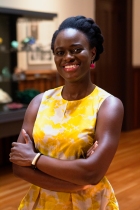 Annette Joseph-Gabriel
Annette Joseph-Gabriel
Annette Joseph-Gabriel is an Assistant Professor of French and faculty affiliate in Africana Studies at the University of Arizona. Her areas of research specialization include contemporary Caribbean literatures, cultural movements of the African diaspora, and the Enlightenment in the French Atlantic world. Her book project, Decolonial Citizenship: Black Women’s Narratives of Political Identity in the Francophone World examines the political and literary writings of women involved in mid-twentieth century anti colonial movements in Francophone Central Africa and the Antilles. Her work has appeared in Small Axe, Slavery & Abolition: A Journal of Slave and Post-Slave Studies and The French Review. She is managing editor of Palimpsest: A Journal on Women, Gender and the Black International.
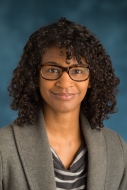 Reighan Gillam
Reighan Gillam
Reighan Gillam is an Assistant Professor in the Departments of Communication Studies and Afroamerican and African Studies at the University of Michigan. Her book manuscript, Colored Lenses: Afro-Brazilian Media and the Politics of Representation examines images produced by Afro-Brazilians acts of visual self-determination that challenge dominant racial discourse in Brazil.
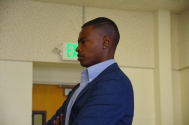 Kai M. Green
Kai M. Green
Kai M. Green is a shape-shifting Black Queer nerd Boi; an Afro-Future, freedom dreaming, rhyme slinging dragon slayer in search of a new world. He is a writer, scholar, poet, filmmaker, abolitionist, feminist, and whatever else it takes to make a new and more just world. He is invested in the work of healing and loving Black: he is particularly interested in helping to develop healthy black masculinities. His work and thinking on queer and trans issues within communities of color has been published widely in prominent journals and anthologies such as TSQ: Transgender Studies Quarterly; GLQ: A Journal of Lesbian and Gay Studies; No Tea, No Shade: New Writings in Black Queer Studies; and many others. Dr. Green is a regular contributor to activist and grassroots publications, such as the feministwire.com,everydayfeminism.com. He is also a member of BYP100, Chicago where he sits on the healing and safety council. Dr. Green earned his Ph.D. in American Studies & Ethnicity from the University of Southern California in 2014. He is currently an assistant professor of feminist studies at UC Santa Barbara
 Cynthia Greenlee
Cynthia Greenlee
Dr. Cynthia Greenlee is an independent historian and senior editor at Rewire, the leading source of news on reproductive health, rights and justice. Dr. Greenlee has a master’s in journalism from the University of North Carolina and a doctorate in American history from Duke University. She specializes in African-American women’s and legal history of the late nineteenth and early twentieth centuries. She began her writing career with an unintelligible picture book at age 5, worked as a newspaper journalist and editor, and later in communications for international health organizations. Her scholarly work has earned her awards and grants from Gender & History, the Ford Foundation, the Coordinating Council for Women in History, the American Historical Association, and the American Society for Legal History. In addition to her academic work, she is part of the Echoing Ida writing collective for black women and writes historically informed pieces related to race, the arts and reproductive issues. Her journalism has been published at the now-defunct Africana.com, American Prospect, Dissent, EBONY.com, Literary Hub, Ms., and Paste magazine, among other outlets. She consults with reproductive health organizations and foundations, and she is currently at work on two projects: a manuscript about black girls and the law, and a second book about African-Americans and abortion.
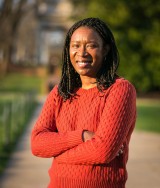 Claudrena N. Harold
Claudrena N. Harold
Claudrena N. Harold is an associate professor of African American and African Studies and History. In 2007, she published her first book, The Rise and Fall of the Garvey Movement in the Urban South, 1918-1942. In 2013, the University of Virginia Press published The Punitive Turn: New Approaches to Race and Incarceration, a volume Harold coedited with Deborah E. McDowell and Juan Battle. Her latest book is New Negro Politics in the Jim Crow South, which was published by the University of Georgia Press. As a part of her ongoing work on the history of black student activism at U Va., she wrote, produced, and co-directed with Kevin Everson two short films, Sugarcoated Arsenic and We Demand. Sugarcoated Arsenic, screened at the International Film Festival Rotterdam, the Oberhausen International Short Film Festival, the Edinburgh International Film Festival, Vienna International Film Festival, New York Film Festival, Festival du Nouveau Cinema, and Porto Post Doc Film and Media Festival. We Demand was screened at the Berlin International Film Festival in February 2016.
 Anasa Hicks
Anasa Hicks
Anasa Hicks is a doctoral candidate in New York University’s Department of History. Her dissertation “Hierarchies at Home: A Twentieth-Century History of Domestic Service in Cuba” explores questions of race, gender, and ethnicity in a field of work with deep ties to Cuba’s slave society past. The majority of Cuban working women were domestics for most of the twentieth century, and families employed domestic workers to assert their middle -or upper- class status, but domestic service in Cuba failed to reach the valorized status of other forms of work because of who performed it. From the eve of slavery’s abolition to the 1959 Revolution, “Hierarchies at Home” critically examines how Cubans perceived their maids and the work that they did, and how that affected domestics’ lives and circumstances. Hicks graduated with honors from the University of North Carolina at Chapel Hill with a major in History. Her undergraduate thesis explored witchcraft, race and criminality in early twentieth-century Cuba. Hicks was a 2014-2015 awardee of the Ford Foundation Dissertation Fellowship. Her research has also been supported by the Woodrow Wilson National Fellowship Foundation and the Cuban Heritage Collection at the University of Miami.
Archie Holmes
Archie Holmes is the Vice Provost for Academic Affairs and a Professor of Electrical and Computer Engineering at the University of Virginia. As vice provost for academic affairs, he serves as chief advisor to and representative of the executive vice president and provost in academic affairs related to the curriculum and general health and welfare of the academic units. He received his B.S. (highest honors) from the University of Texas at Austin and his M.S. and Ph.D. degrees from the University of California at Santa Barbara. Prior to joining U Va. in 2007, Archie was an Associate Professor in the Electrical and Computer Engineering Department at the University of Texas at Austin and a holder of the Lybarger Endowed Faculty Fellowship.
Habiba Ibrahim
Habiba Ibrahim is an associate professor of English at the University of Washington in Seattle. She is the author of Troubling the Family: The Promise of Personhood and the Rise of Multiracialism, which University of Minnesota Press published in 2012. Her most recent essay, “Any Other Age: Vampires and Oceanic Lifespans,” was awarded African American Review’s 2016 Darwin T. Turner Prize. Her other work appears in LIT: Literature Interpretation Theory, The Black Scholar, and American Literary History. Her current book project, tentatively entitled, “Oceanic Lifespans,” examines the articulations of race, gender, and age in the black literary imagination.
 Catherine A. Jones
Catherine A. Jones
Catherine A. Jones is Associate Professor of History at University of California, Santa Cruz. She completed her Ph.D. at Johns Hopkins University. Her research focuses on emancipation, children, and gender in the nineteenth century. She has presented scholarship at many academic conferences including the Organization of American History and the Society for the History of Children and Youth. She has published work in the Journal of Southern History, J19, and several edited collections. Grants from several institutions including the Huntington Library, Virginia Historical Society, and Virginia Foundation for the Humanities have supported her research. Her book Intimate Reconstructions: Children in Postemancipation Virginia (University of Virginia Press, 2015) recently won the Grace Abbot Book Prize from the Society for the History of Children and Youth. She is currently working on two projects, one exploring the incarceration of children in the postemancipation South and another looking at the establishment of orphan homes for the children of Union veterans.
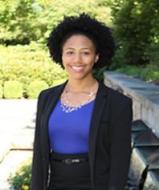 Lindsey E. Jones
Lindsey E. Jones
Lindsey E. Jones is a Ph.D. candidate in History of Education at the University of Virginia’s Curry School of Education and a 2016-2018 Pre-doctoral Fellow at the Carter G. Woodson Institute for African-American and African Studies at the University of Virginia. She earned a bachelor’s degree in Linguistics from Washington University in St. Louis in 2011 and an M.Ed in Social Foundations of Education from the University of Virginia in 2013. Her dissertation project, entitled “‘Not a Place of Punishment’: The Virginia Industrial School for Colored Girls, 1915-1940,” examines the curriculum and institutional culture of Virginia’s only reformatory for delinquent African American girls, arguing that black women reformatory founders countered the sexualization, criminalization, and exploitation of black girls by employing pedagogies designed to honor girlhood as a distinct time of vulnerability and potential. Her research interests include: black girlhood, black women’s history, African American intellectual history, black educators as intellectuals, and black educational self-determination in slavery and freedom.
Tayari Jones
Tayari Jones’s third novel Silver Sparrow is one of two novels chosen for the 2017 National Endowment of the Arts’ Big Read. Her first novel, Leaving Atlanta, a coming-of-age story set against the city’s infamous African American child murders of 1979-81, won the Hurston/Wright Award for debut fiction. Her second novel, The Untelling, about a family struggling to overcome the aftermath of a fatal car accident, received the Lillian C. Smith Book Award from the Southern Regional Council of the University of Georgia Libraries. Jones spent the 2011-12 academic year as a Radcliffe Institute Fellow at Harvard, received an NEA grant for 2012, and is presently Associate Professor in the MFA Program at Rutgers University. Jones is a graduate of Spelman College (B.A.), and the University of Iowa (M.A.), and Arizona State University (MFA).
Ervin Jordan
Ervin Jordan is an Associate Professor and Research Archivist, Albert and Shirley Small Special Collections Library, University of Virginia. He specializes in Civil War and African-American history and is the author of three books including Black Confederates and Afro-Yankees in Civil War Virginia, named by Publisher’s Weekly as one of 1995’s best nonfiction books. He has more than sixty publications in academic and historical journals and encyclopedias including The African American Odyssey, The Encyclopedia of the United States in the Nineteenth Century, The Western Journal of Black Studies, Encyclopedia Virginia, and Voices from within the Veil: African Americans and the Experience of Democracy. His lecture, “To Go Boldly: Alice Jackson, African-American Women, and the Desegregation of the University of Virginia,” was the opening presentation for “NAACP 100: Advancing Civil Rights and Social Justice for a Century: A Symposium” (2009). He is currently a member of the President’s Commission on Slavery and the University; during the 11th Annual Donning of the Kente Ceremony for graduating fourth year students in 2015, Professor Jordan was one of two faculty members who received special recognition by U Va.’s Office of African-American Affairs for contributions and dedication to students.
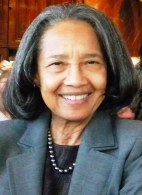 Wilma King
Wilma King
Wilma King, Arvarh E. Strickland Distinguished Professor in African American History and Culture Emerita, University of Missouri, Columbia, Missouri, is the author of publications about slavery and freedom in nineteenth-century North America. Included among them are the monographs: Stolen Childhood: Slave Youth in Nineteenth-Century America (2011, 1995); and The Essence of Liberty: Free African American Women before Emancipation (2006). Other publications within the same historical period are the edited A Northern Woman in the Plantation South: Letters of Tryphena Blanche Holder Fox (1993); and two books for young readers, Children of the Emancipation (2000) and Toward the Promised Land (1995). King, who earned graduate degrees in American history at Indiana University, has two book-length manuscripts in progress. One focuses on African American women and the presidency of William Jefferson “Bill” Clinton, and the other examines the University of Missouri, Columbia, and its policies, politics, and publicity regarding African Americans at the university between 1935 and 2015.
 Phindile Kunene
Phindile Kunene
Phindile Kunene holds an MA in History (WITS). Her research variously explored the history of the local state in South Africa, youth political activism, apartheid forms of co-option and youth political demobilization. She has also explored post-apartheid forms and repertoires of collective action and protest. She is a contributor to the recently published collection of student politics – Students Must Rise: Youth Struggle in South Africa, Before and Beyond Soweto ’76. She has published articles about forms of organizing and demand articulation in community protests. She has worked as an editor for worker publications and on campaigns, popular education, and strategic communications. An activist herself, Phindile has been involved in youth and student movements, the trade unions and currently works as an educator and curriculum specialist based at the Tshisimani Centre for Activist Education. Phindile also serves on the board of the Alternative Information and Development Centre (AIDC).
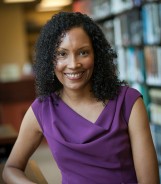 Oneka LaBennett
Oneka LaBennett
Oneka LaBennett is Associate Professor of Africana Studies at Cornell University, where she is a member of the Field in the Department of Anthropology and in the Feminist, Gender and Sexuality Studies Program. She is also affiliated with Cornell’s Latino Studies and American Studies Programs. She received her Ph.D. in Social Anthropology from Harvard University in 2002, and her B.A. in Sociology and Anthropology from Wesleyan University in 1994. Her research and teaching interests include popular youth culture and black girlhood; race, gender and consumption; urban anthropology; transnationalism and African Diaspora; and Caribbean migration. LaBennett is the author of She’s Mad Real: Popular Culture and West Indian Girls in Brooklyn (New York University Press, 2011), and co-editor of Racial Formation in the Twenty-First Century (University of California Press, 2012). Previously LaBennett served as Director of American Studies and Research Director of the Bronx African American History Project at Fordham University. She is currently working on a manuscript entitled Global Black Feminisms: Writing Art, Reading Hip Hop, and Hearing Fiction.
 Daniel Livesay
Daniel Livesay
Daniel Livesay is Assistant Professor of History at Claremont McKenna College in Claremont, CA. His research focuses on questions of race, slavery, and family in the colonial Atlantic World. His research has been supported by an NEH postdoctoral fellowship at the Omohundro Institute of Early American History and Culture, the Fulbright Foundation, the Institute of Historical Research, and the North American Conference on British Studies, as well as a number of short-term fellowships, including most recently from the John D. Rockefeller Library in Williamsburg, VA, and the Huntington Library in San Marino, CA. He is currently finishing a book manuscript under contract with the University of North Carolina Press for the Omohundro Institute entitled, Children of Uncertain Fortune: Mixed-Race Jamaicans in Britain and the Atlantic Family, 1733-1833 (fall 2017). He has recently begun work on a new project on the lives of elderly slaves in the Atlantic entitled, Endless Bondage: Slavery in Old Age in Colonial America.
 Laura L. Lovett
Laura L. Lovett
Professor Laura Lovett specializes in twentieth century U.S. women’s history with special interests in the histories of childhood, youth movements, and the family at University of Massachusetts – Amherst. She explores generational dialogues concerning gender roles and the place of children in the women’s movement in a new collection of history written for the public, When We Were Free To Be: Looking Back at a Children?s Classic and the Difference It Made, co-edited with Lori Rotskoff and published by the University of North Carolina Press in November 2012. Her first book revealed the unacknowledged legacy of eugenics in a range of reforms regarding populism, irrigation, conservation, and housing, which indirectly or directly promoted selective reproduction. Conceiving the Future: Pronatalism, Reproduction and the Family in the United States, 1890-1930, was published by the University of North Carolina Press in 2007. Professor Lovett is currently researching the intersection of eugenics and housing reform and their resulting influence on discriminatory housing policies in the United States and Europe. From 2008 to 2011, she was the Director of the Five College Women’s Studies Research Center. She was also a founding co-editor of the Journal of the History of Childhood and Youth, which has now moved on to Marquette University. The journal can be found here: shcyhome.org/publications. At present, Professor Lovett is the North American Associate Editor for the Women’s History Review.
Michele Mitchell
Michele Mitchell is associate professor of history at New York University and former North American editor of Gender & History. In addition to histories of gender and sexuality, she specializes in U.S. history, African American history, the African diaspora, and intellectual history. Her research interests also include the history of medicine. She has served as an elected member of the National Council of the American Studies Association (2009-2012) and was a member of the ASA’s Executive Committee from 2010-2012. She recently completed her last year (2011-2014) on the Executive Board of the Organization of American Historians. The Organization of American Historians appointed her as a Distinguished Lecturer from 2010-2013. In addition to being a 2001-2002 Schomburg Center & National Endowment for the Humanities Scholar-in-Residence at the Schomburg Center for Research in Black Culture (New York Public Library), Mitchell has received a range of fellowship support for her work. Mitchell has also worked as a researcher for two major documentary projects: “Behind the Veil: Documenting African-American Life in the Jim Crow South” (Duke University); and the Martin Luther King, Jr., Papers Project (Stanford University). Mitchell is now writing a book that is tentatively entitled Idle Anxieties: Youth, Race, and Sexuality during the Great Depression. Above and beyond considering myriad ways in which idleness among workers, transients, and the poor was deemed a threat to social order, Idle Anxieties will examine how concerns about youth and idleness were suffused with gendered, sexualized, raced, and classed meanings as it considers changing notions of time, productivity, and leisure during economically slack years.
 Timothy Nicholson
Timothy Nicholson
Timothy Nicholson received his Ph.D. from Stony Brook University in 2012 and is an Assistant Professor at Saint Peter’s University in Jersey City, New Jersey. His research involves expanding the field of African youth studies, and he is currently in the process of completing a manuscript that looks at how, during the 1950s and 1960s, East African youths interacted with local and global paradigms of authority in imperial and Cold War contexts. He has spent a considerable amount of time in East Africa conducting oral histories and working in archives throughout the region and has published several book chapters and articles on the subject.
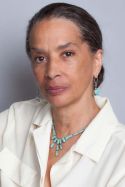 Denise Oliver-Velez
Denise Oliver-Velez
Denise Oliver-Velez is a social justice activist, feminist, and applied anthropologist – currently teaching Anthropology and Women’s Studies at SUNY New Paltz. She is a Contributing Editor for the progressive political blog Daily Kos, for whom she writes a weekly Sunday morning feature – covering race, gender and culture. She is a former member of The Young Lords Party (YLP), serving as their Minister of Economic Development and was the first woman on their Central Committee. She is also a former member of The Black Panther Party. She worked in community media and public broadcasting for many years, was a co-founder and program director of Pacifica’s first minority-controlled radio station, WPFW-FM, in Washington DC. and Program Director for WNYC-TV in NY. She was also the executive director of the Black Filmmaker Foundation.
Photo by William Salomon Orellana
 Ebony Perro
Ebony Perro
Ebony Perro is a Humanities Ph.D. student at Clark Atlanta University. Her concentrations are Africana Women’s Studies and English. Her teaching and research interests include Black Girlhood, Black Rage, The Black Bildungsroman, Colorism Studies, Mixed Race Studies, and Black Women Writers. She received her bachelor’s and master’s degrees in English from the University of Louisiana at Lafayette where she served as a Women’s Studies Research Assistant. She currently teaches College English at Clark Atlanta University.
Vanessa D. Plumly
Vanessa D. Plumly is Lecturer and Program Coordinator of German in the department of Languages, Literatures & Cultures at SUNY New Paltz. She has published articles on surveillance in the German television series Tatort, the intersectionality of fear and violence in recent German historical contexts, and on the integration of German Vergangenheitsbewältigung (coming to terms with the past) and protest into the second-year German language curricula in the German Studies Review, Women in German (forthcoming in September), and Die Unterrichtspraxis. Plumly has two forthcoming chapters in edited volumes, focusing on research drawn from her dissertation, “BLACK-Red-Gold in der ‘bunten Republik’” in which she assessed the performance and discursive construction of the German concept of home (Heimat) in black German cultural productions since the Wende (1989-90) period and for which she received a number of grants and fellowships. She is currently co-editing a volume on New Perspectives in Black German Studies with Tiffany Florvil.
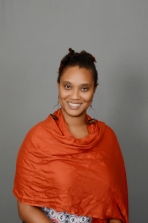 Shani Roper
Shani Roper
Shani Roper is a historian of the 20th century Anglophone Caribbean with broad interests in the history of childhood and social policy, public history, and museum education. She received her B.A. and M.A. in History from the University of the West Indies, Jamaica and her Ph.D. in History from Rice University. Between 2013 and 2015, she served as Postdoctoral Fellow and Lecturer in the Department of Africana Studies, Smith College. Currently the Research Officer of Liberty Hall: the Legacy of Marcus Garvey in Jamaica, Roper works on public history projects that facilitate discussions on race, class, and self-identity and encourages an engagement with Garveyism, Black Nationalism and Pan Africanism in Jamaica. Conceptualizing children living in industrial schools as social actors, Roper’s current book project Eradicate before you Educate: Juvenile Criminality and Social Control in Colonial Jamaica 1868 – 1948 examines the ways in which colonial discourse of race, childhood and citizenship shaped the development of state policy on juvenile delinquency and childhood destitution among the black majority on the island. Roper has a forthcoming article in Journal of the History of Childhood and Youth, volume 10 #1 and submitted articles on corporeal punishment and relief for the poor to the Journal of Caribbean History and the Journal of Social History, respectively.
 Karen Sánchez-Eppler
Karen Sánchez-Eppler
Karen Sánchez-Eppler is L. Stanton Williams 1941 Professor of American Studies and English at Amherst College, where she has taught since 1988. She received her Ph.D. in English from The Johns Hopkins University. She is the author of two books, Touching Liberty: Abolition, Feminism, and the Politics of the Body (University of California Press, 1990) and Dependent States: The Child’s Part in 19th Century American Culture (University of Chicago Press, 2005) and is one of the founding co-editors of The Journal of the History of Childhood and Youth. She is currently working on two projects, one centered in Childhood Studies, In the Archives of Childhood: Playing with the Past and the other in Book History, The Unpublished Republic: Manuscript Cultures in the Mid-Nineteenth Century United States. Her scholarship has received fellowship support from the Fulbright Association, The National Endowment for the Humanities, the American Council of Learned Societies, the Newberry Library, Winterthur Museum, and the Stanford Humanities Center. She has just concluded her term as President of C19: The Society of Nineteenth-Century Americanists. As the first faculty advisor to Amherst’s Center for Community Engagement, a founding board member of the Emily Dickinson Museum, and a participant in an array of public school and Community College partnerships, including a successful COPC grant for youth initiatives in Holyoke Mass., she has worked to develop institutional structures that link intellectual and civic life.
 LaKisha Simmons
LaKisha Simmons
LaKisha Simmons is the author of Crescent City Girls: The Lives of Young Black Women in Segregated New Orleans (UNC Press, 2015), which won the SAWH Julia Cherry Spruill Prize for best book in southern women’s history and received Honorable Mention for the ABWH Letitia Woods Brown Memorial Book Award for the best book in African American women’s history. Simmons has written about black girlhood and historical method in the Journal of the History of Childhood and Youth, about black college students and sexual cultures in the 1930s for Gender & History, has a forthcoming article on southern black girl writers in Tulsa Studies in Women’s Literature, and is working on an article on the ways in which Beyoncé’s Lemonade remembers Louisiana’s sugar plantations. She teaches courses on African American gender history, girls’ studies, and black motherhood.
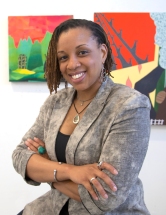 Alexandria Smith
Alexandria Smith
Alexandria Smith (b. in 1981) in the Bronx, NY earned her BFA in Illustration from Syracuse University, M.A. in Art Education from New York University, and MFA in Painting and Drawing from Parsons The New School for Design. She is the recipient of numerous awards and residencies including, most recently, a Pollock-Krasner Foundation Grant and residencies at Yaddo, Skowhegan School of Painting and Sculpture, the Virginia A. Myers Fellowship at the University of Iowa and the Fine Arts Work Center Fellowship (2013-15). Her work has been exhibited in a number of solo and group exhibitions: one-person exhibitions include “Perpetual Adorations” at Scaramouche Gallery, New York and “It just feels right to me” at Rush Arts Gallery, New York. Group exhibitions include “I found god in myself” at The Schomburg Center for Research and Black Culture, New York, and “Last night I got a glimpse of the good life” at Thierry Goldberg Gallery, New York. Alexandria has been featured in The Root’s “10 Female Artists of Color on the Rise,” 2016 and Huffington Post articles: “Alexandria Smith’s Adorably Grotesque Cartoons Explore What Little Girls Are Made Of,” “Black Artists: 30 Contemporary Artmakers You Should Know Under 40,” and “10 Female Artists To Watch in 2013.” Smith was recently appointed Assistant Professor of Studio Art at Wellesley College. She currently lives and works in Brooklyn, NY and Wellesley, MA.
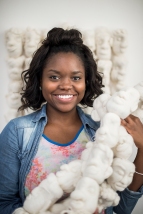 Nastassja Swift
Nastassja Swift
Nastassja Swift is a multi-disciplinary artist holding a Bachelor’s degree of fine art from Virginia Commonwealth University (VCU) with a major in painting and printmaking, minoring in craft and material studies. As the gallery co-director for Mist Gallery, an online exhibition space for artists, Nastassja has been curating online shows for the past two years. Within her own studio practice, she works mainly with paint, print processes, and fiber. Her work is a blend of misconceptions involving race and gender and her critique on them. In the past year she has shown work throughout Virginia, as well as Tennessee, Maryland, California, and Qatar where she was the 2015 – 2016 Artist in Residence at VCU Qatar and put together her first solo show. The solo show “I Keep Repeating It Over and Over in My Head” received rave reviews with publications in Oh LaLa Magazine, Qatar Tribune, The Peninsula Newspaper and The Gulf Times. Nastassja is currently living and working in Virginia Beach, VA.
Lynn M. Thomas
Lynn M. Thomas is a Professor in the Department of History and adjunct in Anthropology and Gender, Women and Sexuality Studies at the University of Washington, Seattle. She is the author of Politics of the Womb: Women, Reproduction, and the State in Kenya (2003), and co-editor of The Modern Girl Around the World: Consumption, Modernity, and Globalization (2008), and Love in Africa (2009). She has served as a co-editor of the Journal of African History and chair of her department. Currently, Thomas is completing a monograph on the history of skin lighteners centered in South Africa, which looks out towards the United States and East Africa.
Patrick H. Tolan
As director of Youth-Nex, Patrick H. Tolan champions the center’s mission to promote healthy youth development to enhance the potential of youth as healthy, productive citizens, and to reduce developmental risk through focused research, training, and service. Youth-Nex is a University-wide nexus for innovative and translational research that bridges to practice. It is the only center in the country accommodating simultaneous work on multiple aspects of youth development, including mental health, educational functioning, citizenship, social functioning, and physical health. The center brings new and exciting potential for advancement in this emerging and important area of study.
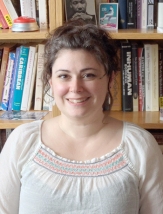 Colleen A. Vasconcellos
Colleen A. Vasconcellos
A Fulbright Scholar, Dr. Colleen A. Vasconcellos graduated with her Ph.D. in Atlantic Studies from Florida International University in Miami, Florida in 2004. She is an associate professor of history at the University of West Georgia, as well as a member of the Women’s Studies faculty. While her teaching focuses on comparative slavery and emancipation, the history of the Caribbean, and Latin American women, her research largely centers on the history of enslaved girls and youth in eighteenth-century Jamaica. Dr. Vasconcellos’s first book, a co-edited volume with Jennifer Hillman Helgren entitled Girlhood: A Global History was published by Rutgers University Press in 2010. Her most recent book, Slavery, Abolition, and Childhood in Jamaica, 1788-1838 was published by the University of Georgia Press in 2015 as part of its Early American Places series. Dr. Vasconcellos is currently working on a new project examining the lives of three enslaved girls living in Jamaica during the eighteenth and nineteenth centuries.
Dara Walker
Dara Walker is a doctoral candidate in the Department of History at Rutgers University where she studies African American history. She received her B.A. in African-American Studies from Eastern Michigan University in 2009 and her M.A. in Pan-African Studies from Syracuse University in 2011. Dara’s academic interests include the history of childhood and youth, urban history, twentieth century U.S. social history, the digital humanities, and public history. Dara’s dissertation, “They Dared to Fight: Black High School Student Activism in Detroit, 1966-1973” is a historical study of black adolescent activism in Detroit’s public schools during the Black Power era. The first social and intellectual history of high school activism, “They Dared to Fight” examines the ideas and activism of student activists, and expands the discussion of this history beyond the heady moments of youth rebellion. Dara is a recipient of the Ford Foundation’s Dissertation Fellowship (2016-2017) and was a semi-finalist for the NAEd/Spencer Foundation’s Dissertation Fellowship (2015-2016).
Crystal Lynn Webster
Crystal Lynn Webster is a Ph.D. candidate at the University of Massachusetts, Amherst department of Afro-American Studies and a current Mellon dissertation fellow in African American History at the Library Company of Philadelphia. Her dissertation, entitled “Fugitive Play, Discursive Resistance: The Politics of Black Childhood in the Nineteenth Century,” explores the development of a political expression of black childhood from the antebellum era through the turn of the century. She has presented her research throughout the U.S. as well as internationally in Reading, U.K., as part of the Mothering Slaves Network. Her dissertation has been granted funding from the University of Massachusetts, Amherst, the American Antiquarian Society, the W.E.B. Du Bois Special Collections Archive, and the Library Company of Philadelphia.
Joanna Lee Williams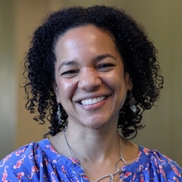
Joanna Lee Williams received her Ph.D. in 2008 in Developmental Psychology from Temple University. She is an assistant professor and is also affiliated with Youth Nex: The U.Va. Center to Promote Effective Youth Development. Williams’ research interests focus on race and ethnicity as social contexts for youth development. Specifically, her work examines ethnic identity as a form of positive youth development in the face of discrimination and other stressors, and ethnic identity in relation to youths’ beliefs and behaviors. She also has applied interests in understanding diversity, peer relations, and positive outcomes in youth development programs and serves as the Associate Director of Research for the Young Women Leaders Program (YWLP), a mentoring program for middle school girls. In 2014, Williams was one of five young scholars in the country to be awarded the William T. Grant Foundation Award. The grant sponsors a five-year study of the benefits and challenges of ethnic diversity in middle schools sponsored. For this new work, she will investigate diversity in early adolescent peer social networks.
Leah Wilson Puryear
Leah Wilson Puryear is the Director of the Upward Bound Program at the University of Virginia. Mrs. Puryear has served on the boards of Offender Aid and Restoration (OAR), Aids Services Group (ASG), Piedmont Virginia Community College Board of Trustees, and the Charlottesville City School Board. Mrs. Puryear is the first African-American female elected to the City School Board and has recently been reelected to her third term. While serving on the School Board, she has been Chair, Vice-Chair, Chair of the PREP Board (Piedmont Regional Education Program), Chair and Vice –Chair of the CATEC Board (Charlottesville-Albemarle Technical Education Center) City of Promise Steering Committee, Grace Tinsley Scholarship Committee, March of Dimes Chef Auction Committee, University and Community Action for Racial Equity Committee (UCARE). She received her B.A. from Hampton Institute, now Hampton University, and her M.A. from Federal City College, now the University of the District of Columbia.
Lisa Woolfork
Lisa Woolfork is an associate professor of English at the University of Virginia, where she specializes in African American literature and culture. The University of Illinois Press published her book Embodying American Slavery in Contemporary Culture in 2008. In addition, her work concerns televisual representations, including an article on blood mixing in HBO’s True Blood in the South Carolina Review and a chapter on All in the Family and The Jeffersons titled “Looking for Lionel” in Race-ing for Ratings: African Americans in Television, edited by Lisa Guerrero and David Leonard. Professor Woolfork also teaches a course on George R. R. Martin’s book and HBO’s television series Game of Thrones. This course, which received media recognition from many sources, including Perez Hilton, Rolling Stone Magazine, and the Wall Street Journal when it was offered in the summer of 2014, remains popular. Recently, Professor Woolfork published an article titled “Nominal Blackness” (about the rhetorical and social weight of black women’s names) as well as an essay about the role of whiteness in the 2016 film “The Free State of Jones.”
